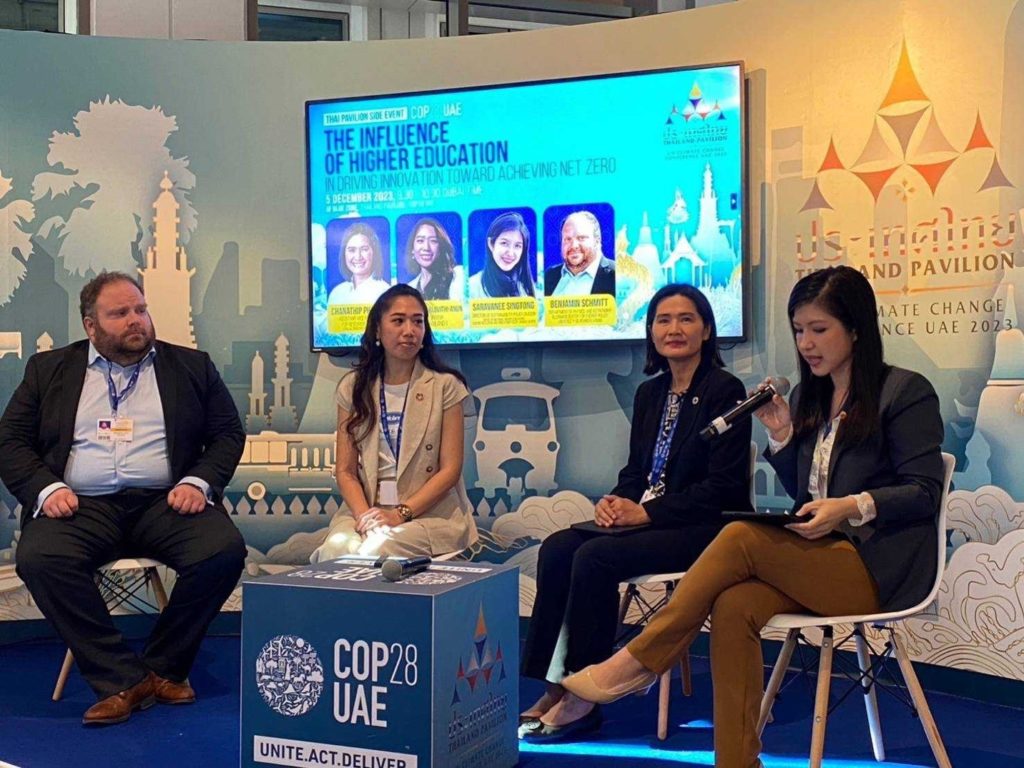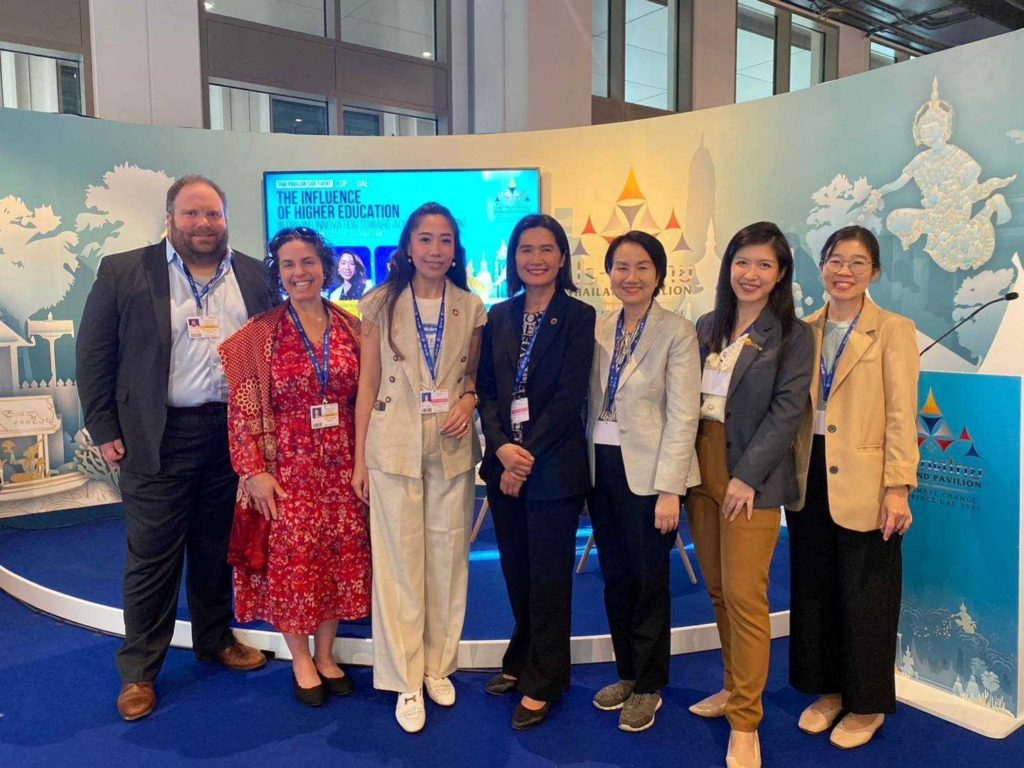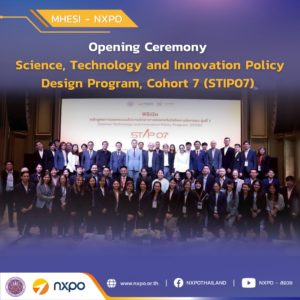The Department of Climate Change and Environment, in collaboration with over 20 public and private organizations and academic institutes, recently organized the Thailand Pavilion at the 2023 United Nations Climate Change Conference (COP28) held in Dubai, United Arab Emirates (UAE). As one of the co-organizers, NXPO organized the Innovation Zone and three side events within the Thailand Pavilion, showcasing initiatives undertaken by NXPO to reduce greenhouse gas emissions in Thailand.

On 5 December 2023, NXPO Director of Sustainable Policy Division Dr. Saravanee Singtong moderated a side-event seminar titled “The Influence of Higher Education in Driving Innovation Toward Achieving Net Zero”. The panelists included Prof. Dr. Chanathip Pharino, Ms. Nutthakarn Klovuthi-anun, and Dr. Benjamin Schmitt.
Prof. Dr. Chanathip Pharino, Professor of Environmental Engineering at Chulalongkorn University, presented her university’s undertakings in five strategic areas: energy transition, development of energy resilience, addition of green spaces, change in lifestyle, and support systems. The university also collaborates with private companies to implement technologies and innovations that drive the net-zero transition.

Ms. Nutthakarn Klovuthi-anun represented the industry perspective in this seminar. She is the Managing Director of Oklin (Thailand), a manufacturer of food waste composter. Her company collaborated with Chulalongkorn University and Suratthani Rajabhat University to establish food waste composting centers that transform food waste into compost, effectively reducing waste and carbon footprint.

Dr. Benjamin Schmitt shared information on the Advanced Simons Observatory (ASO) project in which he has been involved at the Kleinman Center for Energy Policy, University of Pennsylvania. The project developed a renewable energy system for a high-altitude site, such as an observatory located in the middle of a dessert in Chile. A photovoltaic array (PVA) was implemented to generate power for telescopes and various equipment in the observatory. Other initiatives at the observatory include waste reduction and recycling, deployment of electric vehicles for shuttle services within the facility, and expansion of eco-friendly observatory infrastructure.








